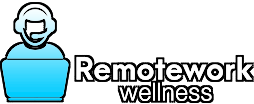
Rapid growth is often a dream come true for solopreneurs. After months or even years of grinding, the surge in clients, orders, and attention can feel like a well-earned reward. But that success can quickly become overwhelming if you’re unprepared. What once was manageable on your own can morph into chaos if systems, finances, and support aren’t up to the task. To thrive instead of floundering during rapid expansion, you’ll need to make smart, fast moves that stabilize your business and set it up for sustainable success.
Evaluate the Limits of Your Current Setup
Before diving into new opportunities, you need to assess whether your existing infrastructure, resources, and team can actually support the uptick in business. You may find that your bandwidth is already maxed out, your tools are outdated, or your solo schedule doesn’t allow time for strategy. This is the moment to be brutally honest with yourself. If your current systems are already straining, expansion will only compound the problem, so pinpoint the stress points and decide whether to upgrade, offload, or delegate.
Delegate Smarter With a Virtual Assistant
At a certain point, the small but constant demands—like answering calls, managing email, or scheduling appointments—can become major distractions. This is when a virtual assistant becomes invaluable. For instance, Kathy McCabe offers support with tasks like phone call handling via remote call forwarding, online notarizations, inbox organization, and more. Instead of being tied down by admin work, you can stay focused on high-level strategy and decision-making that moves your business forward. A VA isn’t just support—they’re a force multiplier.
Sharpen Your Edge With Business Education
To make informed decisions during growth spurts, you need more than instincts—you need business acumen. Enrolling in a business degree program can equip you with vital skills in accounting, communications, operations, and management. You don’t need to step away from your business to do this either. Online programs make it possible to earn your degree while working full-time, giving you the flexibility to study at your own pace while applying what you learn in real-time. A stronger business foundation means fewer missteps and more confident scaling.
Rework Financial Projections for Reality, Not Hope
With more revenue comes more complexity. You’ll need to revisit your financial forecasts and budgets to reflect new income, rising expenses, and increased cash flow demands. Forecasting based on the pace of your growth can help prevent overspending or running out of cash during a critical phase. Unexpected costs—like hiring, upgrading tech, or faster shipping—can quietly erode profits if they aren’t factored in early. Build flexibility into your budget and prepare for cash flow swings, not just linear profits.
Automate the Chaos Before It Starts
Rapid growth exposes the inefficiencies in your day-to-day processes. Tasks that once took minutes can balloon into hours under pressure. This is where automation becomes a solopreneur’s best ally. Whether it’s automated invoicing, email marketing flows, or scheduling systems, the more you can streamline, the more time you’ll reclaim. Don’t wait for burnout—invest in tools and systems that remove the need for constant manual intervention and reduce the risk of costly human error.
Revisit Your Supply Chain Before It Breaks
An overwhelmed supply chain can kill momentum just as fast as it’s gained. Whether you’re selling physical products or digital deliverables, you need to ensure every link in your fulfillment process can scale with you. This might mean renegotiating terms with vendors, building relationships with backup suppliers, or investing in better logistics. A cracked delivery system will erode trust and slow referrals, so make sure your backend can match your front-end growth.
Tech That Grows With You
When your business levels up, your technology should, too. Relying on patched-together software or free tools might’ve worked before, but scalability requires more robust, integrated systems. Look into CRM platforms, project management tools, inventory systems, or customer support chatbots that can grow with your business. The key is choosing solutions that won’t need to be replaced in six months. Make technology work for you so you’re not buried under admin tasks that should’ve been automated weeks ago.
Create a Marketing Plan Geared for Scale
Your marketing strategy shouldn’t just drive growth—it should sustain and direct it. What got you here might not get you there. If you’re still relying on word of mouth or unstructured social media posts, it’s time to professionalize your strategy. Use analytics to identify what’s working and lean into it. Consider content marketing, SEO, email funnels, and paid advertising—whatever makes sense for your niche. Your message should evolve alongside your business, speaking to a broader or more refined audience as needed.
Fast growth can be exhilarating, but it’s also the moment that separates hobbyists from entrepreneurs. Without preparation, the wave can crash instead of carrying you forward. But with smart planning, strategic hiring, and a focus on scalability, you can turn temporary demand into long-term momentum. The tools, people, and systems you put in place now will dictate whether your business stays afloat or rises to new heights. Don’t just survive the growth—lead through it, and come out the other side stronger, smarter, and more resilient.
Discover how Kathy McCabe can transform your business with expert virtual office assistance, offering personalized support to keep you organized and efficient!



